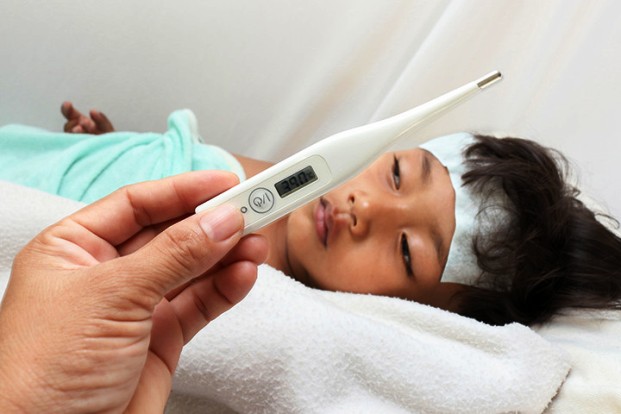How Soon after Exposure Do Symptoms of Dengue Appear
Apr 19, 2022
Following exposure to Dengue infection by the bite of mosquito the symptoms can appear after 4 to 7 days. The Aedes Aegypti mosquito (vector of Dengue fever) often bite during the day hours and bread in clean water contrary to the anopheles and culex mosquitoes which often bites in night hours. Dengue fever is often a self limiting fever in most individual. They only need some supportive treatment. Around 1% of the victims may develop serious symptoms like haemorrhage or shock, which may be fatal.

Signs and Symptoms that highlight that the patient is suffering from Dengue:
The diagnosis of dengue virus (DENV) infection should be suspected in individuals with typical clinical manifestations :
- Fever
- Headache
- Nausea
- Vomiting
- Pain behind eyes
- Muscle pain
- Pain in joints
- Rash
- Bleeding manifestations
- Positive tourniquet test
- Leukopenia – reduced platelet count)
- Relevant epidemiologic exposure (residence in or travel within the past two weeks to an area with mosquito-borne transmission of dengue virus infection).
How is Dengue clinically diagnosed?
During the first week of illness, the diagnosis of dengue virus infection may be established via detection of viral nucleic acid in serum by means of reverse-transcriptase polymerase chain reaction (RT-PCR) assay (typically positive during the first five days of illness) or via detection of viral antigen nonstructural protein 1 (NS1; typically positive during the first seven days of illness).
In primary infection, the sensitivity of NS1 detection can exceed 90 percent, and antigenemia may persist for several days after resolution of fever; in secondary infection, the sensitivity of NS1 detection is lower (60 to 80 percent)
Phases of Dengue :
Dengue virus infection consists of three phases:
- A Febrile Phase
- A Critical Phase
- A Recovery Phase.
Within the WHO 1997 classification scheme, all three phases of infection occur in the setting of DHF (Dengue Haemorrhagic Fever) and dengue shock syndrome (DSS); Dengue fever (DF) includes febrile and convalescent phases but no critical phase. Within the WHO 2009 classification scheme, all three phases of infection occur in the setting of severe dengue and dengue with warning signs; dengue without warning signs includes febrile and convalescent phases but no critical phase.
Treatment is supportive, emphasising fluid replacement and appropriate management of shock and organ dysfunction. With intensive care support, mortality rates are 1% or less. Aspirin should be avoided due to bleeding risk. Corticosteroids have not been shown to help. No existing antiviral are effective.
Breeding places of Aedes mosquitoes should be abolished and the adults destroyed by insecticides. Then no licensed vaccine available.
Save

.jpg)
.jpg)




